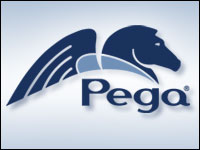
Pegasystems has deepened its 7-year-old relationship with Amazon AWS, and also has teamed up with Microsoft Azure, company officials told Pegaworld attendees on Tuesday.
The deals are part of a series of planned partnerships aimed at giving Pega’s clients choice in their cloud environment and avoiding lock-in. Pega last month inked an agreement to deliver Pega software on Pivotal Cloud Foundry.
“These partnerships enable us to optimize all of our solutions within different cloud provider environments,” said Ying Chen, head of product strategy at Pegasystems.
“Pega has taken an approach of giving customers the choice of whether or not they want to go to the cloud — and if so, what cloud platform is best for them,” noted Rebecca Wettemann, VP of research at Nucleus Research.
“Given Pega’s size and diverse client base with varying degrees of cloud acceptance, this makes a lot of sense,” she told CRM Buyer. “Pega building its own cloud wouldn’t be cost-effective.”
What Customers Will Get
The collaboration with AWS lets Pega customers embed AWS’ Amazon Connect cloud-based contact center management service for real-time customer interactions directly into Pega’s artificial intelligence-based customer service management solution.
That integration will give agents full customer context and let them easily manage telephone-based interactions.
Customers can choose whether to run on Pega’s fully managed cloud platform powered by AWS and optimized for Pega software — the Pega Cloud — or to deploy Pega technology directly on their own AWS cloud, maintaining full control of their environment. In both cases, they’ll get 24/7 Pega support.
The tie-in with Microsoft lets organizations seamlessly run and deploy Pega solutions on Azure as a fully supported cloud platform.
“The partnership represents the first time Pega software has been fully optimized for the Azure environment, making it an extension of our cloud choice offerings,” Pega’s Chen told CRM Buyer.
AWS and Microsoft Azure both incorporate machine learning, and Microsoft announced plans at Build 17 last month to give developers access to a combination of AI and the Microsoft cloud.
“While Microsoft and others offer toolkits and capabilities such as Azure Machine Learning to support AI, Pega has integrated its AI into its Customer Decision Hub — operationalizing AI in a way that’s a real differentiator for the company,” said Nucleus Research’s Wettemann.
“Unlike the black box approach that delivers recommendations based on a somewhat unknown mix of models and techniques, Pega enables customers to select from different models and algorithms based on how opaque or transparent they want the bait for the recommendations to be,” she said. Pega lets customers choose how much they want to “trust algorithms they don’t necessarily understand as a business tool.”
Pega’s Ultimate Goal
Pega “clearly has Salesforce — and more broadly, digital transformation with AI — in its sights,” noted Wettemann, “and is differentiating its offering playing on its strengths of structure and process.”
Its challenges are to “get its message out to a broader market, given competitors with much larger megaphones, and drive adoption with existing customers,” she said.
Microsoft itself offers the Dynamics CRM package, but on a positive note, “there’s already a lot of coopetition in this space, and it’s not going away,” Wettemann said.
The partnership “is about giving our clients that have selected our solutions the choice to run them on Azure, rather than targeting Dynamics,” noted Pega’s Chen.
AWS and Azure are No. 1 and No. 2 in the cloud services provider market, which raises the question of what they get out of teaming with Pega.
“Another badge on their ecosystem belt,” Wettemann suggested.
“As we see Oracle, Microsoft, AWS and others compete more aggressively to be the cloud infrastructure platform of choice,” she said, “more ISVs on their platform means more bragging rights.”
























































